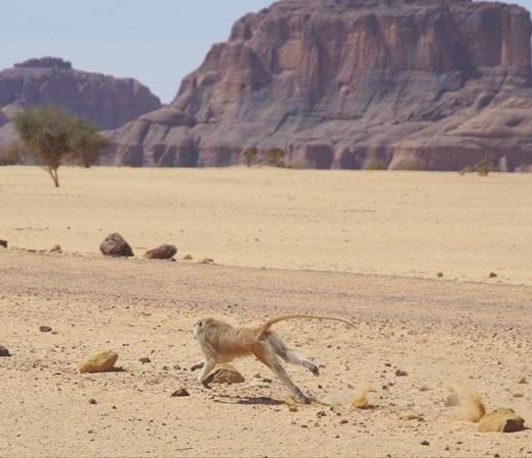Monkeys in the Desert: Patas Monkeys as a Key System to Study Heat Resilience in Primates
Rado Seminar by Gisela Kopp
- Date: Nov 22, 2024
- Time: 10:30 AM - 11:30 AM (Local Time Germany)
- Speaker: Gisela Kopp
- Location: Hybrid meeting
- Host: Max Planck Institute of Animal Behavior
- Contact: ddechmann@ab.mpg.de

A suite of thermoregulatory adaptations that address the challenges posed by high temperatures were key in human evolution. These include the ability to maintain high activity levels under heat, facilitated by a unique capacity of sweating. High death tolls during heat waves, however, indicate the limits of our modern human bodies. Human heat resilience is incompletely understood, as the relative contributions of genomic adaptations, phenotypic plasticity, and acclimatisation are unclear. Comparative studies of primates are a powerful approach to solve these fundamental questions, as they provide the possibility to elucidate the evolutionary origins, pace and dynamics, constraints, and interdependencies among thermoregulatory traits in the primate lineage. In an upcoming project, I aim to elucidate the genomic basis and evolutionary processes of adaptations to heat and aridity in primates. I plan to establish the only primate genus that parallels humans in sweating and endurance - the Patas Monkeys (genus Erythrocebus) - as a key system to study the mechanisms and evolution of heat resilience in primates. In this talk, I will discuss our first results from museomic analyses on Patas Monkey genetic diversity. I will then present my plans to study multiple wild population with combined approaches in non-invasive genomics and biologging to reveal similarities and differences across individuals, populations, (sub)species, and genera, and so pinpoint how phenotypic plasticity, local adaptation, and adaptive speciation contribute to primate heat resilience.